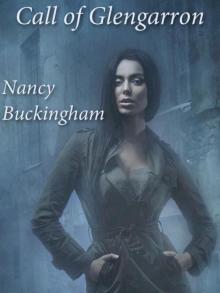- Home
- Nancy Buckingham
Model Murder Page 2
Model Murder Read online
Page 2
“Did she have any brothers or sisters?”
“No, she was the only child, I do remember her saying that. Then after she was orphaned, her father’s sister took over and brought her up in this country. The aunt was unmarried and very strait-laced, and Corinne never really got on with her. That was in this neck of the woods, as it happens, in Cheltenham.”
“An aunt? I suppose you don’t know exactly where in Cheltenham?”
“No, I don’t. And it wouldn’t do you any good, because she’s dead now, too. I happened to ask Corinne recently, while we were chatting, if her aunt was still around. She told me the old girl had pegged out shortly before she got married.”
“Hold on. Are you saying that Corinne Saxon was married?”
“And divorced. It was since the time I knew her, of course, and I only came to learn about it quite by chance.”
“Oh? How was that?”
“If you must know,” he said resentfully, “I was recently going through some back files of the Gazette, searching for something or other, when I stumbled across a news item about the opening of an antique shop at a village somewhere near Marlingford. What caught my eye was a passing mention that the owner had once been married to Corinne Saxon, the well-known model. It went on to say that he and his partner in the new venture planned to marry in the autumn. This was a few years ago, before I took over the Gazette. I commented about it to Corinne, but she just laughed and said the marriage had been a total disaster. The man was a wimp.”
“D’you recall his name?”
Richard gave a noisy sigh. “I suppose I could look it up for you. Shall I send you a photocopy of the paragraph?”
“Yes, do that, soon as you can. Now I’d better get going.”
“You’ll be very tied up on this, I expect. There’ll be no chance of seeing you for the next few days?”
Was he looking for an out? A good excuse not to spend time with her? Kate said woodenly, “I want to see you, Richard. I’ll need to talk to you some more about Corinne, anyway. It might well be that you can come up with some useful information.”
Again, Kate was horribly conscious of the barrier between them. How could she convince Richard that she was just doing her job? That she herself didn’t entertain the smallest doubt about him, no matter what the crime statistics might say about rapists being known to their victims.
All the same, once the time of the killing had been pinpointed, she’d need to establish an alibi for Richard Cower. Otherwise, she’d be shot at by her superintendent (and rightly so) for leaving such an obvious gap in her investigation.
Richard was saying in a withdrawn tone, “I don’t imagine there’s anything more I can tell you about Corinne. It was years ago I knew her, and I’ve not seen all that much of her just lately.”
But exactly how much was not all that much?
“I’ll call you,” Kate finished quickly. “I must go now.”
Richard had provided her with information that could be useful. In a murder investigation, any information about the victim could prove to be significant. What he’d just told her would have to go into the records, to be mulled over by everyone on the squad. Filed. Cross-indexed. Computerized. Okay, okay, but no way was she going to include the juicy little tidbit that the senior investigating officer’s boyfriend had once been the lover of the murdered woman. That fact had no bearing on the case.
None at all.
Chapter Two
The gilt-lettered sign at the entrance gates simply stated Streatfield Park, with nothing to indicate that this was a hotel. The driveway ran pencil-straight for three hundred yards, an avenue of clipped yews standing blackly green against the blueness of the afternoon sky.
At the drive’s end the mansion stood in landscaped grounds of sweeping lawns and terraces. It was a noble pile of beautiful tawny-grey Cotswold stone, surmounted by a baroque-style balustrade decorated with Grecian urns. What Kate was seeing was the remodelled version of a more ancient house, undertaken by an eighteenth-century Fortescue. On three stories, finely proportioned sash windows stretched in perfect symmetry from the central pedimented entrance. The Orangery was a later, one-story addition on the left.
Kate drew up on the expanse of smooth gravel, her Montego looking decidedly meagre beside the opulence of the cars that were casually parked around—a large white Mercedes, a couple of shining Rollers, a Porsche and a chrome-yellow Jaguar. She mounted the half-dozen shallow steps just behind an elegant American couple with Ivy League voices. Inside, they turned left to where, through wide glass doors, Kate glimpsed other guests lounging in deep sofas taking afternoon tea.
The reception desk was discreetly tucked away through a canopied archway off the Great Hall. It was staffed by a slimly attractive young woman with a small elfin face and masses of blond hair piled in a loose coil on top of her head.
“Good afternoon, madam. How may I help you?”
Kate introduced herself. “I wish to see Admiral Fortescue, please.”
“I’m sorry, Chief Inspector, but that will not be possible at the moment.”
“He’s not here?”
“The admiral is resting, as he does every afternoon. He must not be disturbed until four o’clock. That is when he takes his tea.” She glanced at her wristwatch. “In another twenty-five minutes.”
“I’m afraid this is one time he has to be disturbed. Kindly have him informed that I am here, and need to speak to him without delay.”
A moment’s hesitation, then the young woman capitulated. A few words were murmured into the phone. After a brief wait, a man in a grey cotton jacket approached Kate. He was fiftyish, thickly built and swarthy. Merely a few wispy hairs sprouted from the top of his domed head but the brows above the unsmiling grey eyes were thick and straggly, and the sagging jowls were stained with dark blue growth. Not, she would have thought, quite the image for a staff member at a luxury hotel. He spoke in a gruff voice with a strong north-country accent.
“Come with me,” he said, less than civilly. “I’ll take you to the admiral’s quarters.”
Kate walked with him along a wide corridor flanked by Chinoiserie lacquer cabinets.
“May I have your name, please? And what is your position in the hotel?”
His scowling sideways glance demanded what damned business it was of hers.
“Larkin’s the name,” he grunted. “Sid Larkin. I’m Admiral Fortescue’s personal steward.”
“I see. Have you been with him long?”
“I should say so. I was with him back in the navy.” Which explained his walk, the rolling gait associated with sailors. Accentuated, perhaps, by the effect of the whisky Kate could smell on his breath.
They had reached a pair of doors, walnut embellished with carving. Larkin threw open one leaf, and jerked his head.
“Wait in there, and I’ll go and tell his nibs you’re here.” He hesitated a moment before leaving her, and Kate guessed he was speculating about what her presence here meant, but didn’t dare to enquire.
She entered a large sitting room that was comfortably furnished with a mixture of modern and antique pieces. Tall French windows overlooked a manicured lawn at the rear of the house with a long view to distant hills. She turned as a door on her right opened to admit Admiral Fortescue. He came forward leaning on an ebony cane, his other hand buttoning the jacket of his dark grey suit, as if he’d just slipped it on. As a younger man, Kate judged, he would have been quite dramatically handsome. He had piercingly blue eyes, accustomed no doubt to looking at far horizons. His face was very lined now, his hair and trim naval beard were iron grey. Five weeks ago when Kate had been introduced to Admiral Fortescue he was still not fully recovered from major heart surgery. He looked little better now, she thought.
“Chief Inspector, please forgive me if I’ve kept you waiting. I understand that your business is urgent.”
“It is, sir. I’m sorry it was necessary to disturb you, but I’m afraid that I’m the bearer of most unhappy ne
ws.”
The habit of cool command had not deserted him. His eyes regarded her with anxiety, but stoically. The only outward sign of nervousness was the clenching of his knuckles over the knob of his cane.
“Something has happened to my son? My grandchildren?”
“No, it’s not your family. This concerns Miss Corinne Saxon. I regret to inform you that she is dead.”
“Corinne ... dead? That is dreadful. Er ... some kind of accident, I take it?”
“No, sir, not an accident. Her body was found earlier this afternoon in the woods at East Dean, hardly a mile from here. She had been strangled.” Kate withheld any mention of rape at this stage.
The admiral looked startled, stunned, then puzzlement crept into his weathered face. “There must be some mistake. Corinne set off on Wednesday afternoon for a few days’ leave. This woman you found cannot be she.”
“I’m sorry, sir, but it is. I have met Miss Saxon, and you may take it from me that the body found is definitely hers.”
He took moments to accept and believe this, then his whole frame sagged and he sank down into an armchair. He looked pale, quite ill, but he retained the good manners to gesture to Kate to be seated also.
Before doing so, she asked, “May I get you a little brandy, sir?”
“Thank you, if you would be so kind.”
Near the drinks cabinet, on a Dutch marquetry table set to one side of the French windows, was a collection of cups and trophies. Interspersed with these were framed photographs featuring a younger Douglas Fortescue, snapped in sporting gear and looking in great shape. For a past athlete, his present poor health would be hard to bear.
He took the brandy from Kate and sipped it gratefully.
“Who ... who could have done such a terrible thing? Corinne was strangled, you say. Shocking!”
“You told me that Miss Saxon set off from here on Wednesday afternoon for a few days away. Where was she going?”
He looked slightly agitated by the question. Or was it just that he was still a bit dazed from the shattering news he’d received? “I’m afraid I can’t tell you. Corinne didn’t say.”
“Really? Suppose some kind of problem or emergency had arisen? Wouldn’t you have needed to know how to contact her?”
The admiral turned his head from side to side in firm denial. “It wasn’t necessary. Corinne had been working extremely hard for several months to get the hotel launched and running. She needed a complete break, away from it all.” He paused, almost as if scanning his reply for flaws. “Yes, indeed, she was entitled to that.”
“When did you last see her, sir?”
“We lunched together, here, on Wednesday. In the hotel restaurant, that is. Corinne set out directly afterwards.”
“At what time would that have been?”
“Er, let me see ... it must have been about two-fifteen. I remember she glanced at her watch and said she had to be going. I sent a porter to bring her car round to the front, and when he came to say it was outside, Corinne stood up at once. The man carried her case out, and I walked with her to the front entrance.”
So she’d been driving, in her own car. Where the hell was it now?
“Can you give me details of Miss Saxon’s car, sir? Make, colour, registration number. No vehicle was found at the scene, and I must get my people onto tracing it immediately.”
He frowned. “It’s a Ford, I know that, but I’m not very well informed about the modern range of models. It’s a sporty car, bright red, and it has a fold-down hood.”
“An Escort Cabriolet, then.”
“If you say so. Corinne bought it only last month from the Ford dealer in Marlingford.”
“Can you tell me what she was wearing when she left here?”
“Oh dear! She looked very smartly turned out, but then she invariably did.”
“How about the colour of her clothes?”
He frowned again, then shook his head helplessly.
“Try to visualise her sitting with you at lunchtime,” Kate suggested. “Was her outfit brown, red, green, blue?”
“Green,” he said, nodding. “Yes, I’m sure it was green. Some kind of suit, I think.”
Green fitted with the clothing on the body. “May I use your telephone, sir?”
“Of course.” He gestured to where it stood on the small round table beside his armchair. “You need to press nine first, if you require an outside line.”
Kate got through to Divisional HQ. “Bob, I want a systematic search for a red Escort Cabriolet owned by a Miss Corinne Saxon. She bought it from Brownley’s in Marlingford last month, so you can get the registration number from them. All divisions, and notify adjoining forces just for the moment. But if we don’t come up with something fast, it’ll have to go nationwide. That car has got to be found.”
When she replaced the phone, the admiral said, “You think, then, that Corinne’s car was driven away by ... her assassin?”
“It’s a strong possibility. Are you quite certain, sir, that you really have no idea where Miss Saxon was going?”
“No, no, absolutely no idea at all.”
Wasn’t he being too quick and emphatic with his denial? “Well, if anything occurs to you, please let me know at once. My officers will be asking the members of your staff if she said anything to any of them.”
“They’re unlikely to be able to tell you any more than I can, Chief Inspector.” There was a touch of asperity in his tone.
“We’ll see. How about Miss Saxon’s next of kin? Whoever it is must be informed of what has happened. Can you tell me who that would be?”
The admiral stared at her, as if he’d been put on the spot by her question. “I ... I don’t think she had any relatives ... not to my knowledge.”
“I’m sure there must be someone she regarded as her next of kin. Let’s hope there’ll be an address book in her room.”
“Oh, I suppose that is possible.” He paused, then added, “Wasn’t there anything of the sort in her handbag?”
“Her handbag is missing, sir. We found no trace of it at the scene.”
He looked surprised, and ... what? Relieved?
“Where was Miss Saxon’s private accommodation?” Kate asked him. “I’d like to take a quick look around while I’m here.”
“Er ... Corinne had some rooms on the top floor converted into a self-contained apartment.”
“That will be locked, I presume? Will there be a spare key?”
“I imagine there must be. In the hotel office, I expect.”
“When I was here on the launch day, I remember having Miss Saxon’s deputy pointed out to me, though I didn’t actually meet him. He’ll be in charge of the hotel now, I imagine?”
“I suppose he will be. Yves will have to be informed about Corinne.” He sighed jerkily, and blinked his eyes several times. “This is very distressing. It’s difficult to assemble one’s thoughts. Labrosse, the name is—Yves Labrosse. He is Swiss.”
“Perhaps your steward could take me to see Mr. Labrosse, sir. I’d better have a word with him myself.”
“Oh, well, if you think it’s necessary.” The admiral tinkled a silver bell on the table beside him. The steward entered at once, as if he’d been standing just the other side of the door, listening.
“Ah ... Larkin. Chief Inspector Maddox has brought tragic news. Miss Saxon is dead ... murdered. She was strangled, apparently. It is scarcely believable.”
The man’s reaction was contrived, theatrical. He recoiled half a step, his eyes widening in horror. Was he just covering the fact that he’d had his ear to the door? Or was his prior knowledge more sinister?
Kate cut short his expressions of dismay by saying briskly, “I’d like you to take me to Mr. Labrosse, please.”
The man glanced at the admiral for permission.
“Yes, yes, Larkin. Do as the chief inspector says.”
“I’ll come back and see you later on, Admiral,” said Kate. “We shall need to talk again.”
That halted him in his tracks. “Hey! What’re you getting at?”
“Just answer the question, please.”
“You going to be in charge of this case, then?” he asked, showing as much contempt as he dared.
“I shall be heading the investigation, yes. Well?”
He ruminated, sullenly taking his time. Finally, he said, “About half-twelve on Wednesday. She came along to see if the admiral was ready for his lunch.”
“And you didn’t see her again after that?”
“No, I didn’t.”
“Very well,” Kate said, moving on.
The man was uneasy, and she let him sweat. Later, he’d be questioned at length by one of the as-yet-unassembled murder squad. And possibly again by her, if his answers were unsatisfactory.
Beside the reception desk, a door led into an office. Larkin threw it open without first knocking, and a woman working at a word-processor looked up sharply in annoyance. She had a long, rather plain, somewhat horsey face. Large spectacles with downward-sloped lenses, intended to add style, gave her an unfortunately dolorous appearance.
“Look here, Larkin, you can’t just come barging in like this.” She spotted Kate behind him, and modified her resentment. “Oh, what is it?”
“Where is he?” Larkin demanded.
“If you’re referring to Mr. Labrosse, he’s in his office.” She addressed Kate. “Who shall I say wants him?”
“Please inform Mr. Labrosse that Detective Chief Inspector Maddox of the South Midlands Police would like a word.” She turned to the man dismissively. “Thank you, Mr. Larkin. That will be all for now.”
He scowled before departing, though whether at her or at the secretary was uncertain. With her hand on the phone, the secretary asked, “What shall I tell Mr. Labrosse it’s about?”
“Just say that I want to see him.”
Ten seconds later Kate was ushered into the inner room. It was spacious, tastefully furnished in tones of green and beige and brown. There were two desks, both of them large and opulent, but one was larger than the other. The man who rose to greet her had been seated at the slightly smaller desk. She had seen him before at the launch party, but they’d not spoken.

 The Other Cathy
The Other Cathy Design for Murder
Design for Murder Valley of the Ravens
Valley of the Ravens The October Cabaret
The October Cabaret Model Murder
Model Murder Murder in the Cotswolds
Murder in the Cotswolds Deadly Deceit
Deadly Deceit Return to Vienna
Return to Vienna Shroud of Silence
Shroud of Silence The Silver Castle
The Silver Castle A Cotswolds Legacy
A Cotswolds Legacy Marianna
Marianna Cold Coffin
Cold Coffin Kiss of Hot Sun
Kiss of Hot Sun Call of Glengarron
Call of Glengarron Quest for Alexis
Quest for Alexis The Jade Dragon
The Jade Dragon